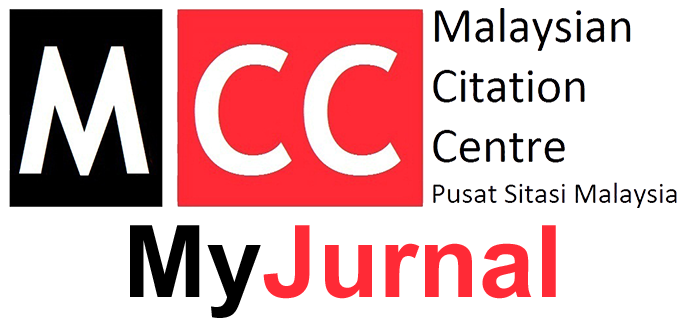Student Perception of Teaching and Learning Based on M-Learning Regarding Student Interest and Motivation in the Sub-Topic of Encryption
DOI:
https://doi.org/10.53840/myjict8-2-43Keywords:
M-Learning, Encryption, PolytechnicAbstract
This study aims to survey students' perceptions of application-based teaching and learning in the subtopic of Encryption for the DFT 20083 Security Basic and IT Professional course. This study was conducted on 50 Diploma in Information Technology (Digital Technology) students at Seberang Perai Polytechnic. The sampling technique used is the stratified cluster random sampling technique. The instrument used in this study is a questionnaire that uses a Likert scale. The results of the pilot study show that the instrument used has a very high reliability value of 0.952. The study data were analyzed to obtain the mean, standard deviation, frequency and percentage. Descriptive analysis of the perception of students' interest and motivation towards teaching and learning based on m-learning in the Basic Security and Professional IT course is at a high level with a mean value of 3.60 for interest and 3.53 for motivation. This finding shows that teaching and learning based on m-learning in the Encryption sub-topic for the DFT 20083 Security Basic and IT Professional course has a positive impact on students. In conclusion, learning based on m-learning revealed to students can create a fun atmosphere in learning DFT 20083 Security Basic and IT Professional courses and can improve learning skills among students.
Downloads
References
Al-Rahmi, A. M., Al-Rahmi, W. M., Alturki, U., Aldraiweesh, A., Almutairy, S., & Al-Adwan, A. S. (2022). Acceptance of mobile technologies and M-learning by university students: An empirical investigation in higher education. Education and Information Technologies, 27(6), 7805-7826.
Alt, D., & Raichel, N. (2020). Enhancing perceived digital literacy skills and creative self-concept through gamifed learning environments: Insights from a longitudinal study. International Journal of Educational Research, 101, 101561. https://doi.org/10.1016/j.ijer.2020.101561
Alyoussef, I. Y. (2021). Factors Influencing Students’ Acceptance of M-Learning in Higher Education: An Application and Extension of the UTAUT Model. Electronics, 10(24), 3171.
Atawneh, S., Al-Akhras, M., AlMomani, I., Liswi, A., & Alawairdhi, M. (2020). Collaborative mobile-learning architecture based on mobile agents. electronics, 9(1), 162.
Bobkov, V. V., Titushina, N. V., Novikova, V. A., & Zhukareva, G. M. (2021). Evaluating the efectiveness of using mobile apps for online learning. Bulletin of P. F. Lesgaft University, 3(193), 44–47
Ching, D. L. Y., & Zainudin, Z. (2023). The integration of M-Learning in a communication skills course for Peer Mentoring Group (PRS): Pengintegrasian M-Pembelajaran dalam kursus kemahiran komunikasi kepada Pembimbing Rakan Sebaya (PRS). Malaysian Journal of Action Research, 1(1), 105-121.
Edwin B, Edwige K, Adrian RM. (2022). Game-based learning approach on students’ motivation and understanding of chemistry concepts: A systematic review of literature. Heliyon. 8 (5), e09541.
Eynon, R. (2021). Becoming digitally literate: Reinstating an educational lens to digital skills policies for adults. British Educational Research Journal, 47(1), 146–162. https://doi.org/10.1002/berj.3686
Gautam, P (2018). What The Advantages And Disadvantages Of Mobile Learning Are. ELearning Industry.
Henderson, J., & Corry, M. (2021). Teacher anxiety and technology change: A review of the literature. Technology, Pedagogy and Education, 30(4), 573–587. https://doi.org/10.1080/1475939X.2021. 1931426
Lutfi & Al-Khasawneh,(2023). Actual Use of Mobile Learning Technologies during Social Distancing Circumstances: Case Study of King Faisal University Students. Journal of Educational Technology, 10(4), 123-136.
Jones MK, Boulden DC, Gasca S, Lord T, Wiebe E, Reichsman F. (2021). Co-teaching with an immersive digital game: supporting teacher-game instructional partnerships. Educational Technology Research and Development. 69 (3) 1453-1475.
Murat, N. C., Din, R., & Alias, M. H. (2020). Kesediaan pelajar tingkatan 6 menggunakan aplikasi mudah alih pendidikan. Journal of Personalized Learning, 3(1), 79-86.
Matzavela, V., & Alepis, E. (2021). Decision tree learning through a predictive model for student academic performance in intelligent m-learning environments. Computers and Education: Artificial Intelligence, 2, 100035.
Qashou, A. (2021). Influencing factors in M-learning adoption in higher education. Education and information technologies, 26(2), 1755-1785.
Yahaya, M. F., Halim, Z. A., Sahrir, M. S., Hamid, M. F. A., & Saad, K. N. M. (2021). Applicability of M-Learning for Basic Arabic Language among Students During Distance Learning.
Zuhriyah S and Pratolo BW. (2020). Exploring students’ views in the ue of quizizz as an assessment tool in english as a foreign language (EFL) class. Universal Journal of Educational Research, 8(11), 5312–5317.





